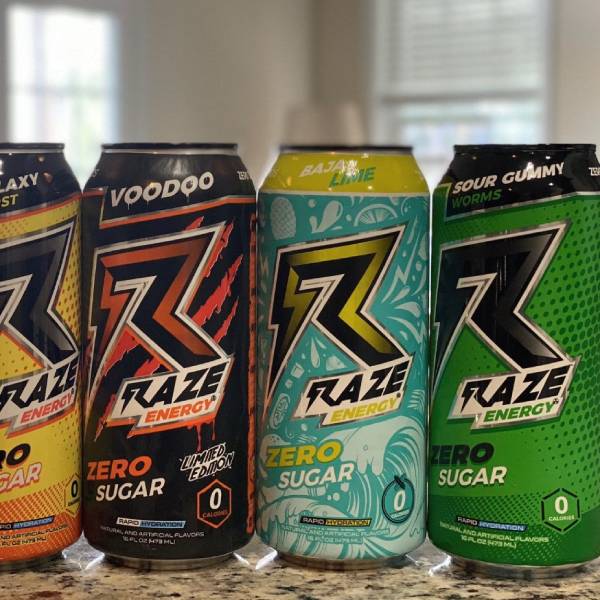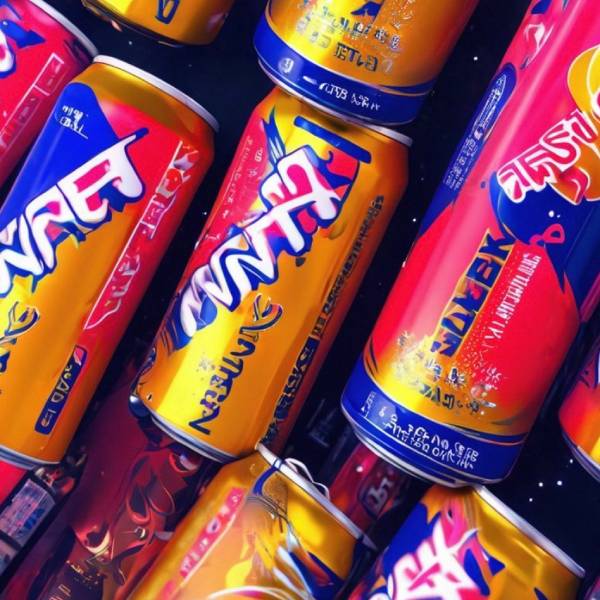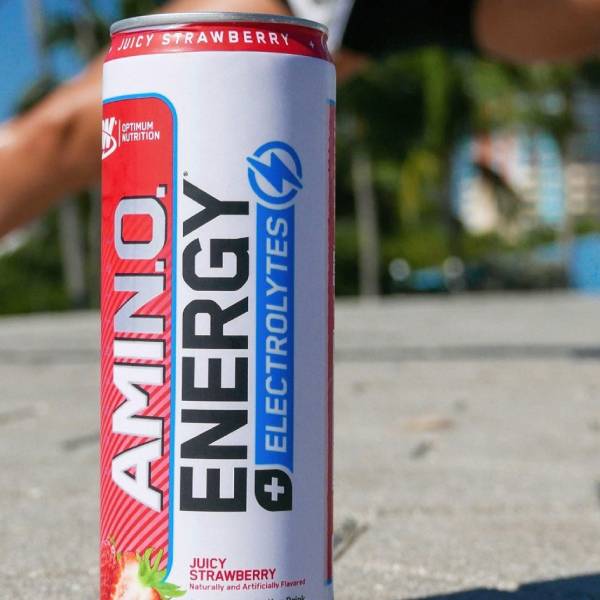Introduction to Facts About Energy Drinks and Their Prevalence
Energy drinks are popular for their promise of a quick energy boost. People worldwide, from busy professionals to students, turn to these drinks for increased alertness and stamina. But what really are energy drinks? They are beverages containing stimulants, notably caffeine, and often supplemented with vitamins, amino acids like taurine, and sometimes herbs such as ginseng. The prevalence of energy drinks has skyrocketed, not just among adults, but increasingly among adolescents. Understanding the facts about energy drinks is crucial, as their popularity among busy professionals and adolescents continues to rise, driven by the desire for increased stamina and alertness.

Marketed as a solution to fatigue and a way to enhance performance, energy drinks appeal to a broad audience. This popularity is evident in the fact that they are now a multi-billion-dollar industry. Despite their widespread consumption, there are many myths and misconceptions surrounding energy drinks. It is important to understand the facts about energy drinks, their ingredients, and their actual effects on the body. With this understanding, consumers can make informed decisions about their energy drink intake and the role these beverages play in their diet and lifestyle.
As we delve deeper into the facts about energy drinks, we will uncover the truth about their safety, the amount of caffeine they contain compared to other beverages, and the regulations in place to oversee their production and sale. Further on, we will explore the real impact of energy drinks on health, from their nutritional content to the potential risks associated with excessive consumption, as well as their marketing strategies and impact on younger consumers. Armed with this knowledge, individuals can approach these drinks with a balanced perspective, acknowledging their benefits while being aware of the potential risks.
Investigating the Safety of Energy Drink Ingredients
The safety of energy drink ingredients often sparks debate. Let’s set the record straight with key facts:
Scientific Research and Global Regulatory Agencies
A wealth of scientific studies and global agencies have confirmed the safety of energy drinks. The European Food Safety Authority is a prime example, having conducted a thorough review to ensure these beverages are safe for consumption.
Despite the safety assurances provided by various scientific studies and agencies, some myths persist about energy drinks containing bull sperm, which often leads to misconceptions about their ingredients and overall safety.
Ingredients Commonly Found in Energy Drinks
Energy drinks typically include caffeine, B vitamins, and amino acids like taurine. Some may also contain herbs like ginseng. These are known for their energy-boosting properties.
FDA and FTC Regulations
In the United States, the FDA regulates energy drinks as food products. This means they must ensure safety and proper labeling. The Federal Trade Commission oversees the marketing claims to prevent misleading advertisements.
Contribution to Overall Caffeine Intake
Despite the popularity of energy drinks, they contribute a minor percentage to total caffeine consumption in diets, at about 2% in the American diet.
Voluntary Labeling Practices
Many reputable energy drink companies voluntarily provide detailed nutrition labels. This includes listing the total amount of caffeine from all sources, allowing consumers to make informed choices.

In conclusion, energy drinks contain ingredients that have been examined and deemed safe by numerous authoritative bodies. Their impact on caffeine intake is relatively small, and transparency in labeling is increasingly becoming the standard among mainstream brands. While many ingredients in energy drinks are considered safe for consumers, it’s essential to check local regulations, as do you have to be 18 to buy energy drinks often varies by location and brand, reflecting ongoing discussions about responsible consumption among younger populations.
Caffeine Content Compared to Other Beverages
Energy drinks are often believed to have sky-high caffeine levels. However, this is not entirely accurate. To put things into perspective, it’s important to compare the caffeine content in energy drinks with other common beverages like coffee and soda.
Coffeehouse Coffee vs Energy Drinks
Contrary to popular belief, a typical energy drink can contain less caffeine than a coffeehouse coffee. For example, while a 16-oz energy drink might have about 160 mg of caffeine, the same size coffeehouse brew could pack nearly 330 mg.
Soda and Energy Drinks
When compared to soda, energy drinks have a higher caffeine content. An average can of soda usually contains under 50 mg of caffeine, whereas a smaller 8.4-oz energy drink can offer around 80 mg.
Understanding Proportions
It’s key to note that serving sizes matter when comparing beverages. A large cup of coffee may offer more caffeine than a small can of an energy drink, but many energy drinks come in larger cans.
The Broader Picture
Looking at the bigger picture, energy drinks contribute just 2% to the average American’s total caffeine intake from all sources. This indicates that other caffeinated beverages and foods play a larger role in daily caffeine consumption.
The takeaway is clear. While it is true that energy drinks contain caffeine, comparing them to other beverages reveals that they are not always the most caffeinated option available. It’s crucial for consumers to know the caffeine content of their chosen drink to manage their consumption responsibly.
Understanding the caffeine content in energy drinks is essential for making informed choices, especially for those who might wonder, can you buy energy drinks with food stamps, as managing consumption responsibly is key to promoting overall health.
Regulatory Oversight of Energy Drinks
When it comes to energy drinks, regulatory oversight ensures they meet certain safety standards. In the United States, two key agencies oversee these beverages: the Food and Drug Administration (FDA) and the Federal Trade Commission (FTC).
The Role of the FDA
The FDA treats energy drinks like food products. This means they must be safe and properly labeled. The FDA checks the ingredients and information on the labels. It helps people know what they are drinking.
The FTC’s Advertising Oversight
The FTC looks at energy drink ads. It checks their claims to avoid deception. The FTC steps in if an energy drink company makes false claims about benefits.
Global Standards and Safety
Around the world, other agencies do similar work. The European Food Safety Authority, for example, has reviewed energy drinks thoroughly. They have affirmed their safety for public consumption.
Voluntary Measures by Companies
Many energy drink makers choose to show caffeine amounts on their labels. They do this even when not forced by law. This shows a level of openness and helps consumers make better choices.
In conclusion, energy drinks are under the watch of government agencies. They ensure that these drinks do not harm public health. Consumers can rely on these regulations for their safety when they drink energy drinks.

Analyzing the Caffeine Intake from Energy Drinks in Diets
In the vast sea of dietary caffeine, energy drinks hold a small portion. They contribute just about 2% to an American’s total daily caffeine intake. This fact contrasts with the common belief that energy drinks are a major source of caffeine in diets.
The Actual Numbers
Research shows that American teens and adults get most of their caffeine from drinks other than energy beverages. Teens average around 100 mg of caffeine per day. This is far less than many adults who drink coffee.
Comparing Dietary Sources
From a broader view, coffee and tea often eclipse energy drinks in terms of caffeine intake. These traditional beverages form a big part of daily diets, especially for adults. Foods with caffeine, like chocolate, also play a role in diets but are less significant than drinks.
Understanding Daily Limits
Health organizations suggest staying below certain caffeine amounts each day. For healthy adults, the cap is about 400 mg of caffeine daily. Energy drinks, when consumed in moderation, fit well within this guideline.
Implications for Consumption
Because energy drinks provide only a fraction of daily caffeine, it suggests fewer health risks if consumed responsibly. Knowing this can ease minds and help in making informed choices about which caffeine sources to include in diets.
In essence, while energy drinks are indeed a source of caffeine, they are not as dominant as one might think. Awareness of the actual caffeine intake from these beverages can lead to smarter, more mindful consumption patterns.
Nutritional Labels and Transparency
Energy drinks often include detailed nutrition labels. These labels show the caffeine content and other key facts. Customers need this information to make wise choices. Mainstream energy drink brands tend to share this openly. They show ingredients, caffeine amounts, and more, both on their packaging and online.
Transparency in Ingredient Listing
Reputable brands list all their ingredients. This includes sugar, caffeine, and additives. Labels often show vitamins and any herbal components. This helps users understand what they consume.
Openness About Caffeine Content
Many energy drinks now clearly state their caffeine levels. This is important. It helps people manage their total caffeine intake. It’s also helpful for those sensitive to caffeine or with health conditions.
Importance of Serving Size
Serving size matters a lot. Labels clarify how much is in each container. They make it easier to compare with other drinks. Knowing the correct serving size leads to more responsible consumption.
Voluntary Disclosures
Some companies go beyond what is required. They choose to give more data about their drinks. They might share information about how much of each vitamin is in the drink. And they may also offer details about the source of their caffeine.
In summary, transparency on energy drink labels is key. It helps consumers stay informed. With clear and honest labeling, people can make better choices about their energy drink usage.
Health Risks Associated with Excessive Consumption
While moderate energy drink consumption is generally considered safe, excessive intake can pose health risks. The high caffeine and sugar levels in energy drinks are the primary concerns.
Caffeine Overconsumption
Too much caffeine can lead to insomnia, anxiety, and increased heart rate. In some cases, it can cause heart irregularities and restlessness. Individuals with caffeine sensitivity should be particularly cautious.
Sugar Content and Health Effects
High sugar content in energy drinks can contribute to weight gain and dental problems. Long-term, it may lead to diabetes, heart disease, and other health issues. Adolescents are especially at risk due to their developing bodies.
Energy Drinks and Stress Levels
Studies have suggested that high consumption of energy drinks can increase stress. This can result in aggressive behaviors and poor mental health outcomes.
Cardiovascular Concerns
Excessive energy drink consumption has been linked to adverse cardiovascular effects. These include high blood pressure and, in rare instances, heart complications.
Potential for Addiction and Substance Abuse
The stimulating properties of energy drinks might lead to dependency. Research has shown a connection between excessive energy drink use and substance abuse.
In conclusion, while energy drinks may offer a quick energy boost, it is crucial to consume them in moderation. Recognizing the potential health risks associated with high consumption can help guide responsible use.
Marketing Strategies and Impact on Adolescents
Energy drinks are keenly marketed towards a younger demographic, leading to notable impacts on adolescents.
Aggressive Advertising Aimed at Youth
Marketing tactics often target adolescents through appealing designs, flavors, and youth-centric advertising channels. This can include sponsored events and social media campaigns.
Health Risks for Young Consumers
Young energy drink consumers face potential health risks from high caffeine and sugar intake. These risks can affect their development and overall health.
Consumption Trends Among Adolescents
Studies show that adolescents are attracted to the marketing of energy drinks. This leads to an increased likelihood of them trying and continuously consuming these beverages.
Regulatory Concerns
There is a call for stricter regulations on how energy drinks are marketed to the youth. The goal is to protect adolescents from aggressive marketing techniques.
Educational Initiatives
Education is crucial in informing adolescents about the effects of energy drinks. Programs that highlight the potential risks can help reduce consumption among youth.
In summary, the strategic marketing of energy drinks significantly influences adolescent consumption, which can carry health risks. Therefore, there is a growing need for regulatory measures and educational efforts to safeguard the well-being of young consumers. Understanding the facts about energy drinks is crucial for parents and educators, as the strategic marketing tactics used can mislead adolescents into consuming these products without recognizing the associated health risks.
Recommendations for Responsible Consumption
As with any dietary item, energy drinks should be consumed with care. Here are a few guidelines:
Keep Track of Caffeine Intake
Be aware of your total daily caffeine consumption. Stay within the recommended limit of 400 mg for adults.
Read Nutrition Labels Carefully
Nutrition labels reveal important information. Check for caffeine content and sugar levels before consumption.
Moderate Your Intake
Limit energy drinks to avoid excessive caffeine and sugar intake. Moderation is key to reducing health risks.
Consider Individual Sensitivity
People with caffeine sensitivity should limit their intake more strictly. Pay attention to how your body responds.
Avoid Mixing with Alcohol
Do not mix energy drinks with alcohol. This combination can mask the effects of inebriation and increase health risks.
Stay Hydrated with Water
Use water as the primary source of hydration. Energy drinks are not a substitute for water.
Educate Young Consumers
Teach adolescents about the potential risks. Encourage them to choose beverages wisely.
By following these practical steps, individuals can enjoy energy drinks responsibly, with awareness of facts about energy drinks, to maintain their health and wellness.
Conclusion: Weighing the Benefits Against the Risks
When considering energy drinks, it’s crucial to balance the potential benefits with the possible risks. These beverages can offer increased alertness and stamina, helping with long hours of study or work. Yet, they carry ingredients like caffeine and sugar that can be harmful in large amounts. It’s essential to weigh the facts about energy drinks, as they can enhance concentration and endurance for prolonged tasks, but excessive consumption may lead to adverse health effects due to high caffeine and sugar content.
Benefits of Energy Drinks
For occasional use, energy drinks may enhance focus and energy levels. They are convenient and widely available. The added vitamins and amino acids might also play a role in energy production. When considering facts about energy drinks, it’s important to note that their occasional use can boost focus and energy, making them a convenient choice for many, with additional benefits from vitamins and amino acids that may aid in energy production.
Risks to Keep in Mind
However, high consumption comes with health concerns. Too much caffeine can cause anxiety and sleeping problems. A lot of sugar can lead to weight gain and possibly chronic diseases.
Responsible Consumption is Key
To enjoy energy drinks safely, moderate your intake, be mindful of caffeine and sugar levels, and adhere to nutrition labels. This approach will help you manage the benefits and reduce the risks.
In summary, while energy drinks can be part of an active lifestyle, they should not replace water or natural food sources of energy. Being well-informed about the facts about energy drinks will guide smart choices for your health and well-being.